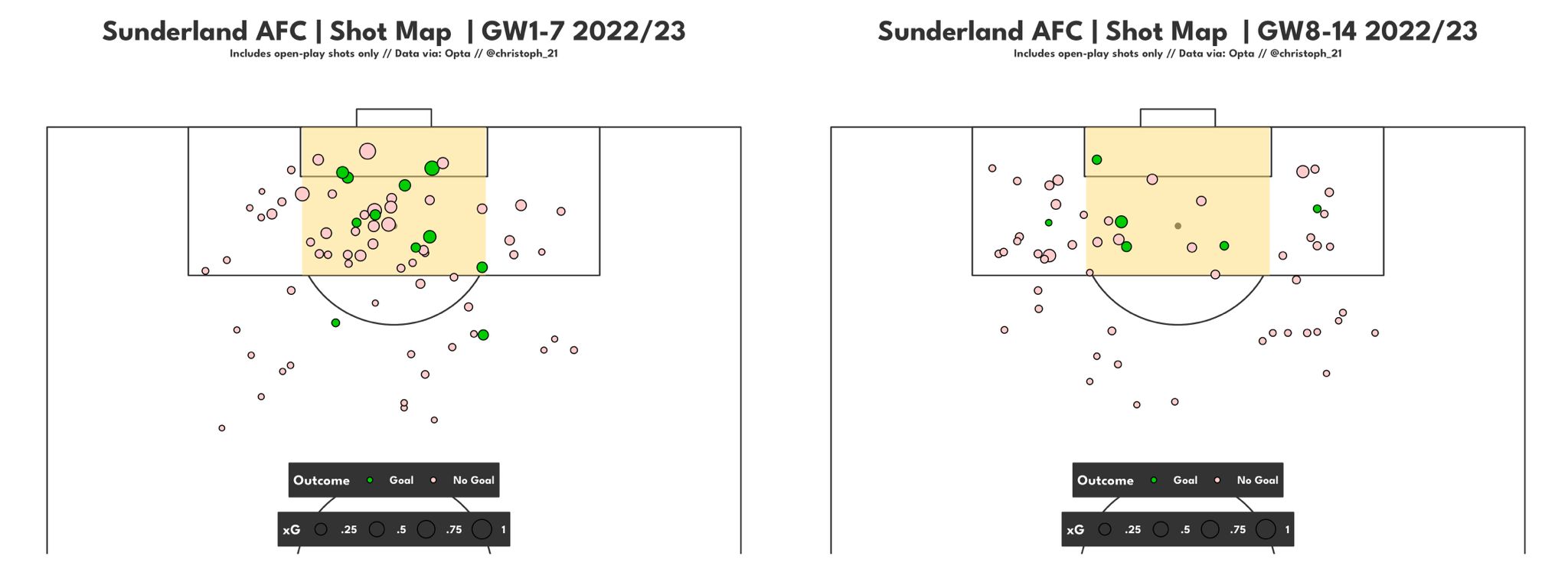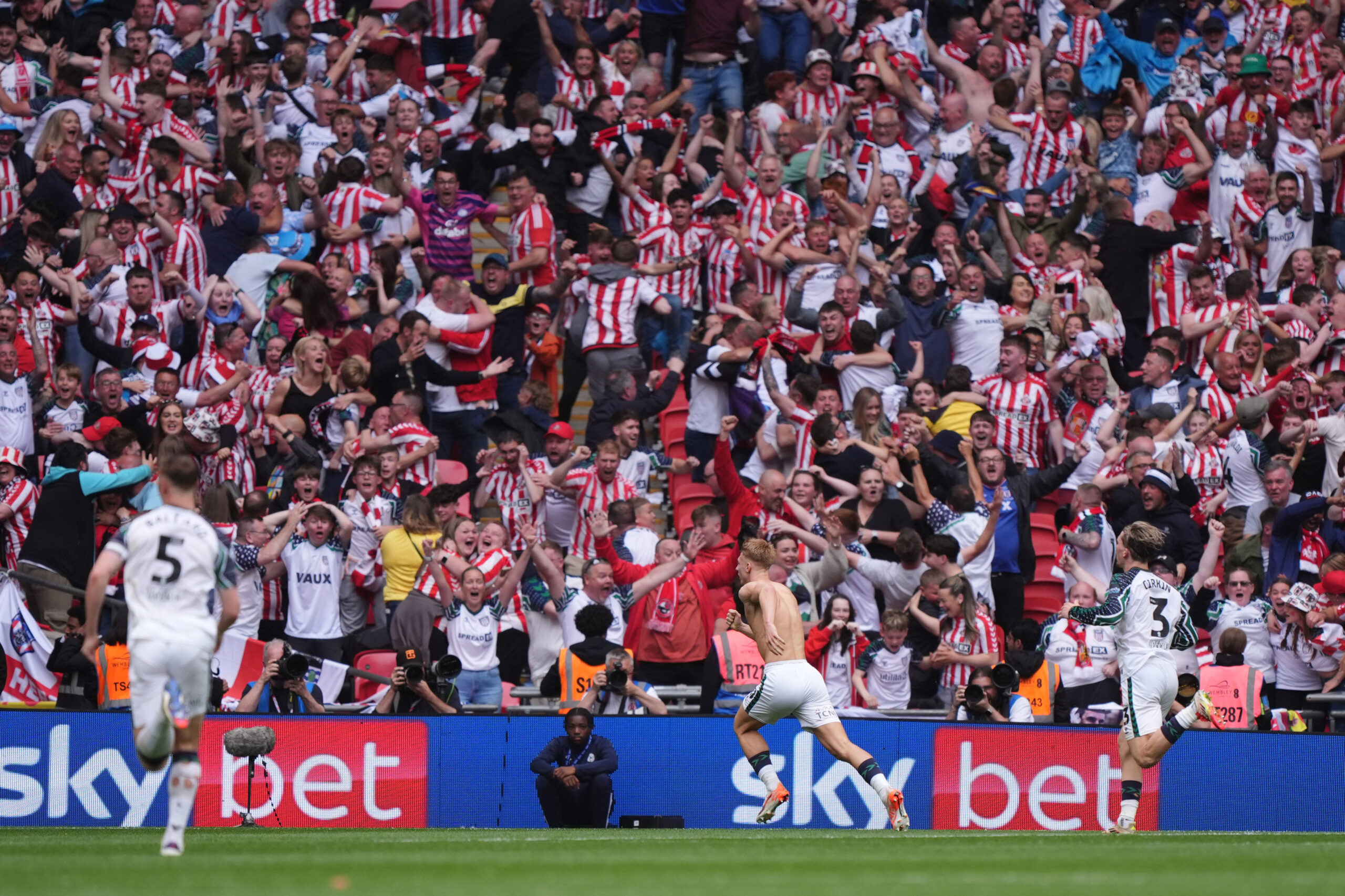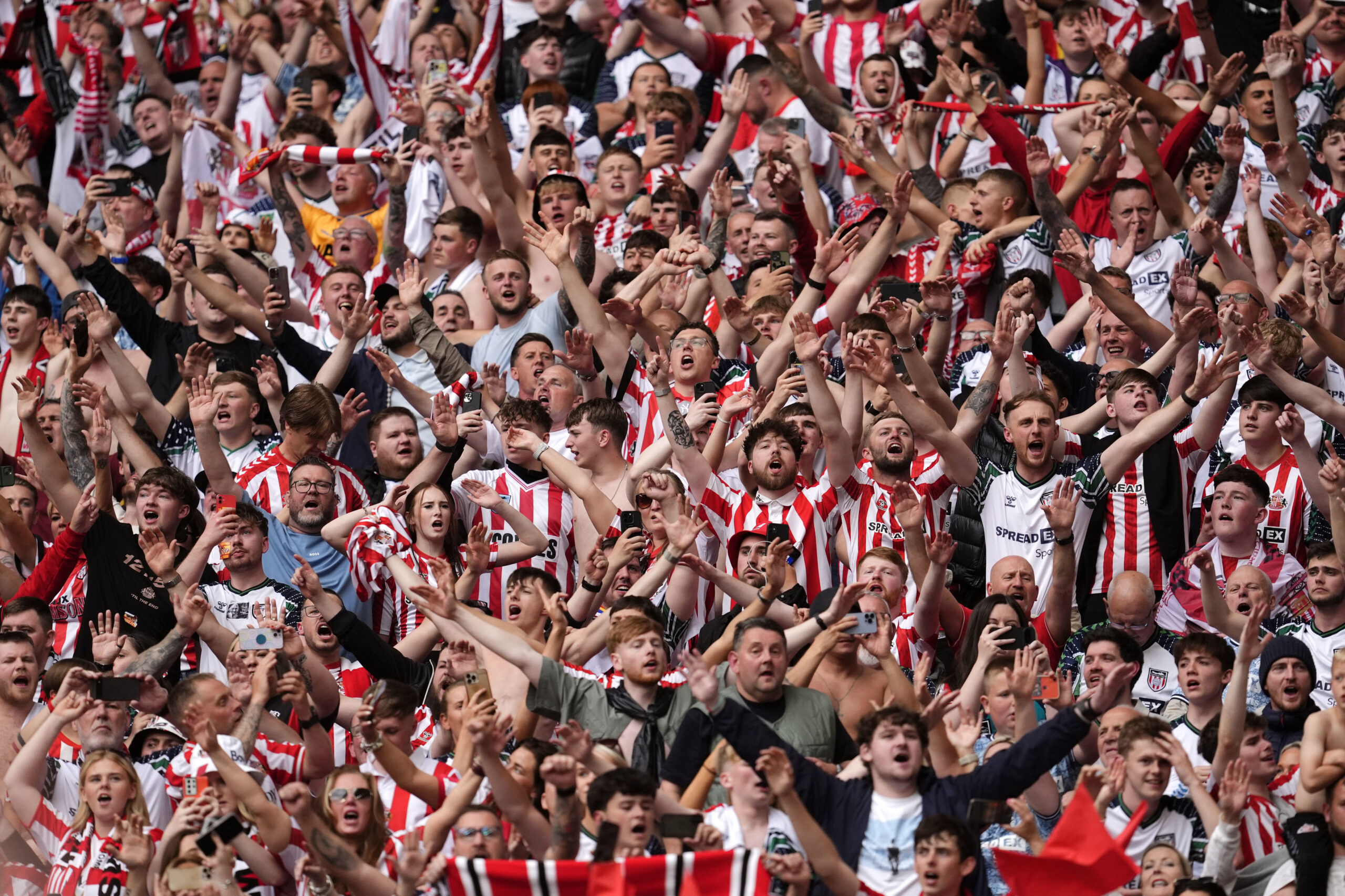Kristjaan Speakman had a plan. But this wasn’t exactly how it was supposed to unfold.
With supporters still giddy from the elation of promotion, his strategic transfer blueprint was drawn up over a summer of red and white positivity. And, as our Championship voyage finally got underway, Sunderland AFC’s Sporting Director quickly offered public contentment with the club’s business.
There was indeed evidence of good work, some of which is outlined here. Yet, when the window closed just two senior strikers remained on Wearside.
Count them – one. Two.
A situation flagged by some; with justification it must be said, to be folly, especially when the preference for 3-5-2 was generating positive results. And soon – as bad luck would have it – Speakman fell foul of gamblers fallacy.
Unlucky Kristjaan – betting on lack of depth and losing
How so? Well, having previously risked success in similar circumstances and coming out on top (more on that below), Speakman seems to have been encouraged by his past results and considered himself on somewhat of a winning streak.
We now know, that wasn’t to be the case.
Dismal luck? Certainly. But, losing two players in quick succession can’t have been beyond the realms of possibility, even for the most optimistic minded. Strategic planning needs contingencies in place and wingers masquerading as strikers is not accounting fully for all likely eventualities. It is hard to glance at Leon Djaku and Amad Diallo in particular and consider them capable of filling in effectively up front. Evidence for this, thus far at least, passes the eye test if nothing else.
As such, the last three games (two draws and a defeat) can largely be attributed to the lack of specialist forwards in the side. It’s undoubtedly dampened the team’s bright start to the campaign, even if overall there are reasons to remain positive.
It’s certainly a spell that feels all the more frustrating given it has largely been self-inflicted.
True, there are many moving parts to a side’s success or failure. Let’s not forget we’ve had strikers in the past who couldn’t hit a barn door. Inconsistency is likely to play a part in stages this season too given the average age of the squad. Plus, such was Swansea City’s excellent display at the weekend (especially in the first half) they were likely to have caused Tony Mowbray’s men problems even if an abundance of strikers were available. Indeed, you have to press and win second balls whether a Ross Stewart is fit or not.
Yet, all things being equal, how much more difficult is that press without a quality focal point to kick start it?
How greater is the challenge in finishing chances without a true marksman?
How tougher is the defending of set pieces without a big striker’s presence in the box?
How much do these factors all add up, impacting upon confidence and then to further decline?
We could go on. In short, it’s a domino effect. Once the first goes the rest begin to tumble.
In this writer’s mind, all current, but hopefully short lived, problems on the pitch lead back to one single issue. Indeed, to suggest that the lack of fit forwards isn’t the most significant factor in recent results not only feels wholly irrational it also ignores the actual evidence in front of us.
Take a look.
The evidence
Admittedly, the caveat here is that the left graph covers our first seven matches and the right the last six. But, what it very clearly shows, if nothing else, is that following the absence of Ellis Simms and Ross Stewart there has been a remarkable drop in effective chances, especially in central areas.
For balance, goals have been scored since – six in fact. But, those first two impressive results against Reading and Watford (which saw us net five) are now increasingly looking like we caught both sides cold. Having presumably spent their time preparing for a Sunderland team with two up top, the Lads – forced to play a false nine – set about taking advantage of the oppositions’ subsequent confusion. Again, if evidence of the further drop off since those matches were needed, the below lays it bare.
It is also stark how not having a focal point does little to help us pause and reset during a game. Someone physical with the ability to hold the ball up in moments of pressure is vital to a team coming up from League One. That’s obviously missing at the moment and adding to irritations.
Lucky Kristjaan
As touched on above, Speakman has form for betting on the lack of squad depth. But interestingly, it must be said, with some prior success. Cast your mind back to those League One days and in particular the turn of the year. With the Black Cats chasing automatic promotion and after January business was concluded we were left with only three fit defenders (one left-back within the whole group) to see out the campaign – Callum Doyle, Danny Batth and Dennis Cirkin.
Three. Fit. Defenders. Another self inflicted predicament.
Thankfully, with the arrival of Alex Neil (who demonstrably improved matters), the return from injury of Bailey Wright and a bit of make-do-and mend approach, improvements began to emerge.
But, the defence wasn’t the only area left exposed back then. With Jermain Defoe’s shambolic exit in March, Aiden O’Brien sold to Portsmouth in the window and injury prone Nathan Broadhead’s further absence, who else also recalls the run up to the Playoffs with just Stewart as the only recognised fit striker?
In both instances positive outcomes ultimately followed. Indeed there are other similar examples but in an attempt for brevity there isn’t room to explore those fully here. For Speakman, in those moments, the game of chance paid off. But, just because an outcome has happened repeatedly before, it does not always follow it will happen the same way again.
Curiously, one defence of Speakman’s current ‘coin toss’ is often exclaimed to be, ‘But who would have come and sat on the bench?’
Certainly, if reports are to be believed, Broadhead was not prepared to return and contemplate such an eventuality. However, every other side in the division save for two, have more strikers at their disposal than we do suggesting it shouldn’t have been the impossibility some would have you believe.
Positives from looking at the bigger picture
It must be emphasised that we’re obviously focusing here on a single talking point – one strategic error of judgement that is in this moment surely costing us points. We have dropped from playoffs to 11th in the table in this short period after all. Yet, it is still possible to be complimentary about the broader direction the club is headed in and despite the concerns above that should remain so. Indeed, the Rokermen have competed admirably in each and every match to date and this has to be applauded.
Publically at least, Mowbray suggests he is as content as he can be with the circumstances too, “If you play with one striker, why would have three that all expect to play?” Yet, for the reasons outlined above, this feels like a very public playing down of the circumstances rather than an outright acceptance of it.
So, in summary, once promotion was achieved problems were expected to rear their head from time to time. It was only natural. This is one such predicament. The frustration is it’s one we may have avoided with better strategic planning. Certainly if some outside of the club highlighted the risk, it was surely possible for those inside to take suitable precautions. And so if Mowbray is to stand the best chance of success this season, January must surely require a less perilous approach from Speakman et al. After all gambling with our survival in the Championship is frankly just too great of a risk.































